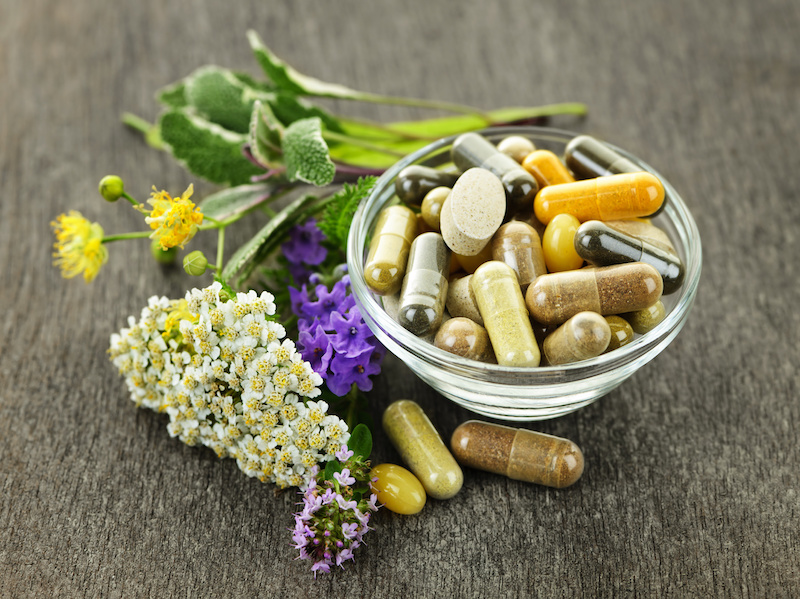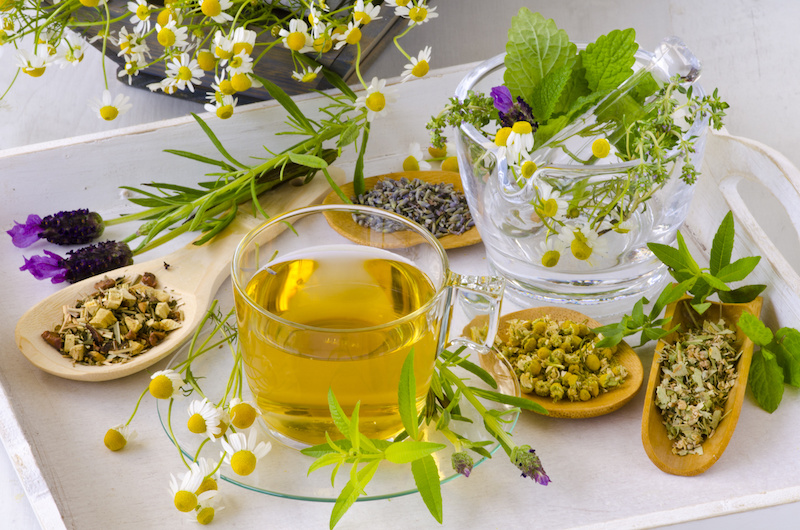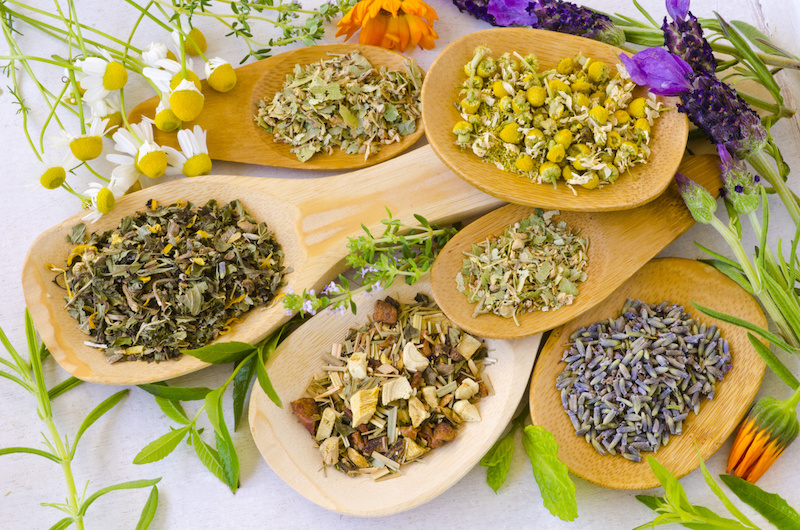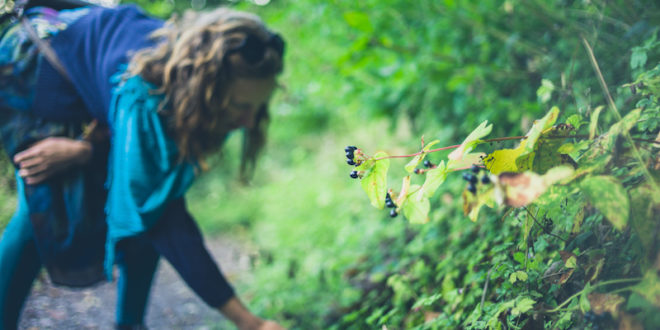In summer, mountain walks can be an opportunity to pick herbs, berries and flowers, sometimes even with the intention of preparing herbal teas or other natural remedies. While it is certain that walking in the woods and being in contact with the natural environment can have positive effects for mental and physical health, it is not so easy to obtain beneficial effects from the preparations that we can prepare with the herbs and flowers that we ourselves have collected.
It is not true that – as many think – what we find in nature is always healthy, and the same goes for “natural” products, obtained from plants, available on the market: being extracted from a plant is not enough to exclude any negative effects for Health. It’s a big misconception that is never talked about enough. Plants, and the supplements obtained from them, can be effective for maintaining good health or for treating any diseases (when they are ingredients in drugs), but they can also be risky.

The useful effects, when they are present, they are due to active substances that must be handled with caution, both when it comes to herbal supplements and, even more so, if we directly use the herbs collected by us during a walk.
We talked about it with Fabio Firenzuoli, head of the Research and Innovation Center in Phytotherapy (CERFIT) of the Careggi University Hospital of Florence, author of the book “Le travails of nature” (LSWR Ed.). “The first“ danger ”linked to the use of herbs is due to the fact that toxic plants exist, and they are also found in our woods, fields and gardens. – Firenzuoli points out – These plants are obviously not on the market, neither in dried form, to prepare herbal teas, nor in the form of supplements, but they can be encountered in nature and can cause intoxication if ingested by mistake, because they are exchanged with other plants or because misinformed. Belladonna (Atropa belladonna), for example, is a plant that can be found in woodlands in mountainous regions and produces beautiful black berries that can attract the attention of children. These contain very potent alkaloids – including atropine, used as a drug – which have severe effects on the cardiovascular and nervous system and ingestion can be fatal. Even the stramonium (Datura stramonium), – continues the expert – belonging to the same botanical family (that of the Solanaceae), is a medicinal but dangerous plant: it contains numerous substances, including scopolamine and hyoscyamine, an active ingredient in medicines such as the Buscopan. Until a few years ago, the leaves were used to produce cigarettes intended to combat asthma, or even to prepare “love potions”, naturally outside of “official” medicine, as its herbal use is not allowed. in any form. One of the most “available” toxic plants is the oleander, poisonous in all its parts, both fresh and dry, even for animals. “

“If we turn to to official channels – herbalists, pharmacies etc. – we can rest assured because we will never find toxic plants, – Firenzuoli underlines – the most common risks are, if anything, linked to the misuse that can be made of these products. The substances contained in herbs can, for example, interfere with the absorption of a drug or with its mechanism of action, reducing or increasing its activity. The idea that a natural product is always healthy leads to neglect the precautions that we usually put in place with drugs. Botanical preparations used for supplements are not drugs and should not be used to treat a disease. In this case, in fact, there is a double risk: using herbal preparations at the same time as drugs, negative interactions can be established that reduce the effectiveness of the drugs or determine the appearance of side effects. Even worse can happen if we think of suspending a safe and effective therapy, based on drugs, to replace it with natural products, perhaps without consulting an expert, only relying on the opinion of friends or what we have read online. “
The first case known of interaction between herbal products and drugs dates back to 20 years ago, when two cases of rejection occurred in patients who had just undergone a heart transplant and were taking St. John’s wort. This plant, an ingredient in drugs and supplements, interferes with the metabolism of many medicines, such as immunosuppressants (such as cyclosporine) used in transplantation, or the anticancer tamoxifen, and cancels their effect. Hypericum also interferes with the anticoagulant warfarin and tolbutamide, used to fight diabetes, but it is just an example, because there are numerous cases. Grapefruit, on the other hand, alters the metabolism of numerous drugs by amplifying their action and therefore increasing the risk of side effects.
“The world interactions is very complex – says Firenzuoli – because when we use a plant extract we do not take a specific substance but a mixture of substances and generally very concentrated compared to the plant as such. The supplements are not drugs and therefore are not accompanied by therapeutic indications, but when the research highlights cases of interactions, these are reported on the packaging. These are indications that must never be ignored. Anyone who suffers from any pathology or takes medications regularly should always speak to their doctor or other experts before adding herbal preparations to their therapy. In this regard, I must unfortunately note that today, while herbalists and pharmacists are thoroughly trained, it is not uncommon to find doctors without specific knowledge of the sector, shortcomings due to the fact that phytotherapy is not included in the basic study plans. When you need a therapy based on medicinal herbs for a true pathology, you must rely on a doctor expert in phytotherapy, and it is also possible to verify the type of training. ” Another risk is linked to the appearance of allergies, always possible, but more likely for some types of products and substances.

The modality too in which a preparation is taken can cause inconveniences. Essential oils, which many use as “perfumes” in diffusers, contain very concentrated substances and if they are ingested they can have serious consequences. The essential oil of thyme, for example, if properly prepared (for example in ointments or ovules), can be useful as an antibiotic; if, on the other hand, it is used in drops on the skin or by mouth, it has a caustic effect and can cause injuries.
All supplements that are on the market are notified to the Ministry of Health and companies are responsible for safety, as is the case for those who produce food. However, it should be noted that not all companies work in the same way and it can be difficult to obtain precise information on the origin, cultivation and preparation of herbs. Sometimes the concentration of the active ingredients is not even indicated. But the risk increases if we shop online, without expert advice, and from websites without the necessary guarantees.
“There are no problems if we buy directly from companies, or from sites recognized by the Ministry of Health. – Firenzuoli points out – On the net, however, we can find foreign sites that sell substances or products that are prohibited in Italy such as those based on ephedrine, an alkaloid present in some plants that was used as a slimming and to improve sports performance. , now prohibited because it is responsible for adverse effects on the nervous and cardiovascular systems (arrhythmias, restlessness, insomnia, etc.). The Internet is also a source of incorrect or inaccurate advice that could lead someone to collect and use plants that may not be effective, or that must be handled with care by experts. In these cases, do-it-yourself is absolutely not recommended, because when you use herbs directly, rather than tablets or other preparations, it is even more important to know how to recognize them and know the correct methods of harvesting, storage, preparation and use. “
© All rights reserved
For 11 years Il Fatto Alimentare has been publishing news on: products, labels, misleading advertising, food safety … and gives readers completely free access to all contents. On the site we do not accept advertisements disguised as articles and we select advertiser companies. To move forward with this transparency policy and maintain our independence, support the site. Donate now!
Roberto La Pira
